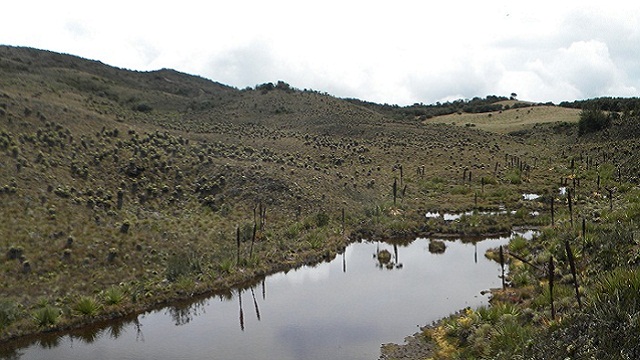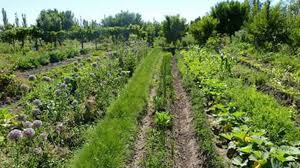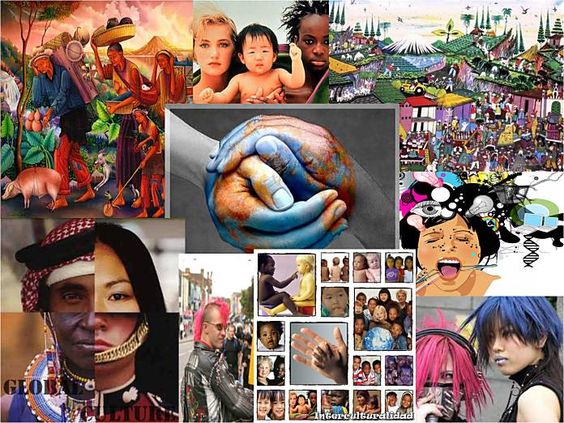Agriculture in the orchards
Agrobiodiversity, or biological diversity associated with agriculture, is a subset of biodiversity in general that refers to the variety and variability of animals, plants and microorganisms that are used directly or indirectly
The ecosystems of our planet produce a wealth of nutritious foods. Immense quantities of grain harvested in the plains and steppes, valleys and terraces: while their gardens overflow with fruit. Biodiversity is the root of this abundance: the variety of crops and food with which human civilizations have grown and depend is possible due to the enormous variety of life on Earth.. If the population of the planet is going to be fed in the 21st century and beyond, humanity needs to preserve the biodiversity that our complex and diverse lifestyles guarantee us. However, biodiversity is declining at an unprecedented rate. During the last hundred years humans have increased the rate of extinction of the species. Humans that drive change, including habitat loss, climate change and overexploitation of resources, have increased the rate at which species are becoming extinct, as much as 1,000 times the previous typical rates of Earth's history. In April 2002, the Parties to the Convention on Biological Diversity (CBD), seeking to make a historic contribution to reduce poverty and to benefit all forms of life on Earth, they committed themselves to achieve a significant reduction in the rate of biodiversity loss at the global, regional and national levels by 2010. Every year on May 22, to raise awareness of the importance of biodiversity, The world celebrates the International Day of Biological Diversity. The theme this year is on "Biodiversity and Agriculture", which highlights the importance of sustainable agriculture not only to preserve biological diversity, but also for biodiversity. feed the world, maintain sustainable subsistence agriculture, and improve human well-being, now and in the future. This publication establishes links and offers possible solutions to preserve the biodiversity and the bene ts it provides. As a principal partner of the CBD, FAO has made a very important contribution to the development and implementation of the Convention as a whole and in particular to its program of work on the biodiversity of agriculture. This partnership has helped the evolution and implementation of the Convention, as well as its contribution to the drafting of this brochure and the collection of relevant tools and materials. The theme for the International Day for Biological Diversity coincides with the in-depth review of the Convention of the program of work on agricultural biodiversity at the ninth meeting of the Conference of the Parties (COP-9) in May 2008, which will increase the importance of safeguarding biodiversity for agriculture at the international

Agriculture and biodiversity
For hundreds of years, agriculture contributed significantly to the diversity of species and habitats, giving rise to many of today's landscapes. However, during the last century, intensive modern agriculture, as a consequence of the high inputs of pesticides and synthetic fertilizers and the specialization of monoculture, has had a deleterious impact on the diversity of the genetic resources of crop varieties and crops. breeds of animals, on the diversity of wild species of flora and fauna and on the diversity of ecosystems. The Red List of Endangered Species of the International Union for the Conservation of Nature (IUCN) of the year 2000 highlights the loss of habitat as the greatest threat facing biodiversity, with agricultural activities affecting 70 percent of all threatened bird species and 49 percent of all plant species [29.In 1996, as a result of the increased loss of biodiversity in agriculture on a global scale, the Convention on Biological Diversity developed a work program on the subject. This program supports, among other concepts, that those agricultural practices that stop degradation and re-establish and increase biological diversity, among which organic agriculture, should be encouraged
Organic agriculture depends on the stabilization of agroecosystems, the maintenance of the ecological equilibrium, the development of biological processes up to their optimum level and of relating agricultural activities with the conservation of biodiversity. Wild species provide a series of ecological services within organic systems: pollination, pest control and maintenance of soil fertility. For this reason, higher levels of biodiversity can strengthen the essential functions for agricultural systems and, therefore, for agricultural performance. The promotion of the increase in functional biodiversity constitutes a key ecological strategy to maintain the sustainability of production in organic farms. Organic systems also use less external inputs and do not use chemical fertilizers, pesticides, genetically modified organisms or synthetic medicines. On the contrary, the systems are designed to be applied in harmony with nature, in order to determine agricultural yields and resistance against diseases. Organic agriculture aims to optimize quality in all aspects of agriculture and the environment, by respecting the natural capacity of plants, animals and the landscape.
For example, the biological control of pests in organic farms is based on maintaining healthy populations of predators and parasites of pests. A California study comparing conventional and organic tomato fields showed more natural enemies and higher species richness in organic tomato fields. No significant difference was registered by any damage to the foliage or tomato fruit, which reflects that the organic system reaches the same levels of pest control without having to apply synthetic chemical pesticides
Temas relacionados:
También te puede interesar
Esta web se reserva el derecho de suprimir, por cualquier razón y sin previo aviso, cualquier contenido generado en los espacios de participación en caso de que los mensajes incluyan insultos, mensajes racistas, sexistas... Tampoco se permitirán los ataques personales ni los comentarios que insistan en boicotear la labor informativa de la web, ni todos aquellos mensajes no relacionados con la noticia que se esté comentando. De no respetarse estas mínimas normas de participación este medio se verá obligado a prescindir de este foro, lamentándolo sinceramente por todos cuantos intervienen y hacen en todo momento un uso absolutamente cívico y respetuoso de la libertad de expresión.
No hay opiniones. Sé el primero en escribir.
https://www.tribunacontactcenter.com/











